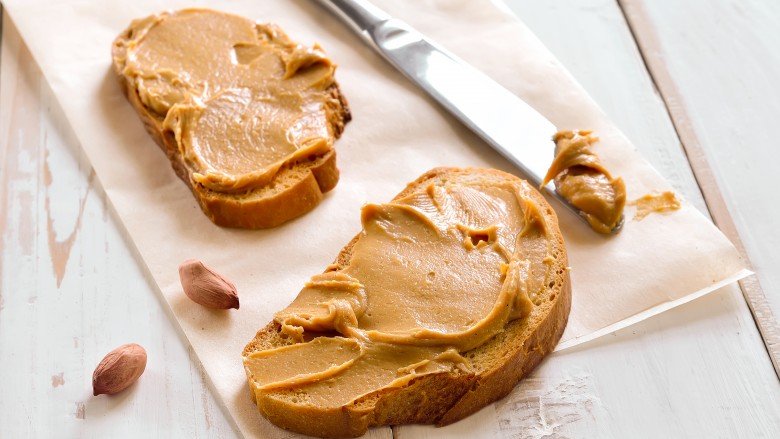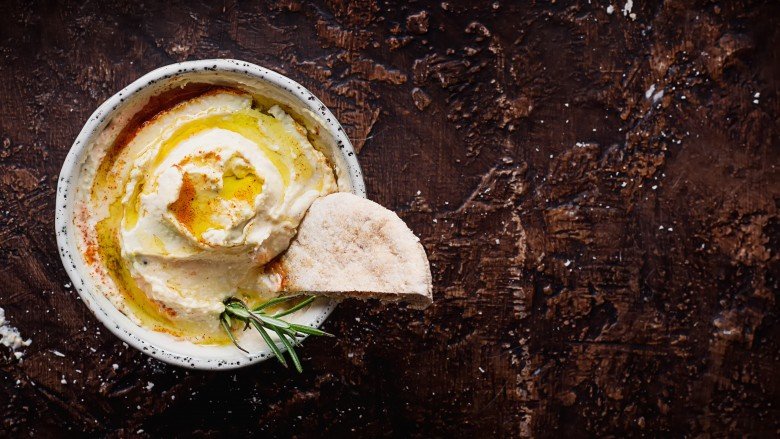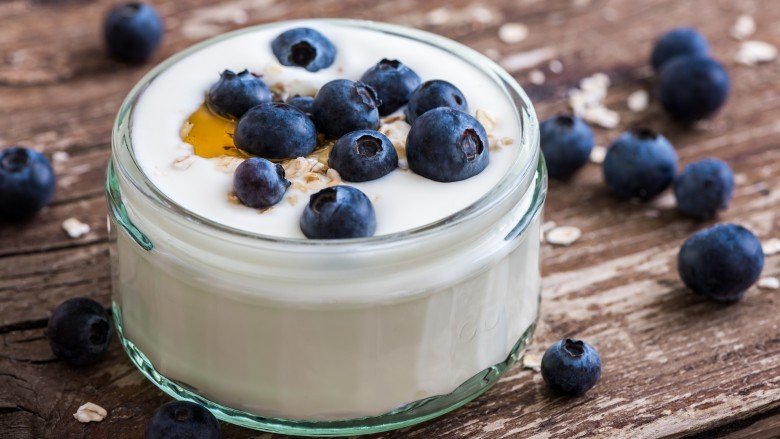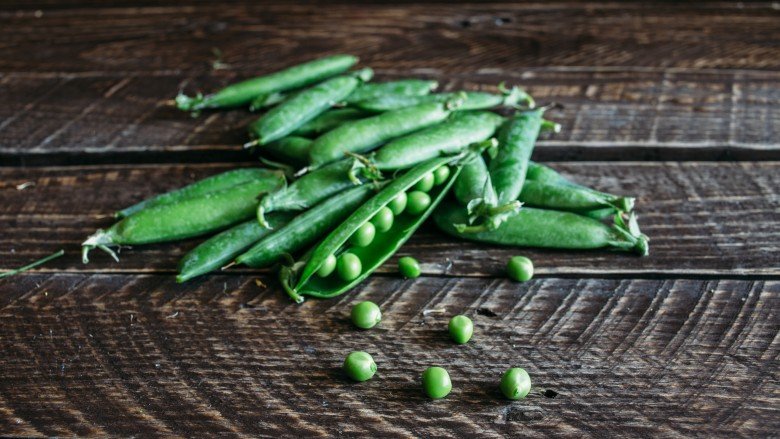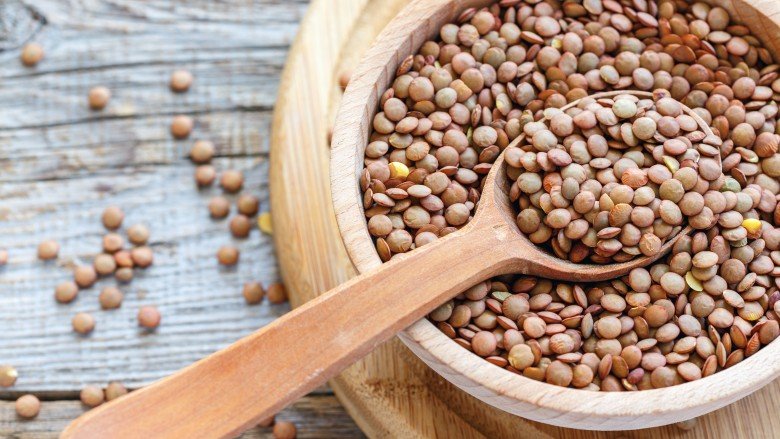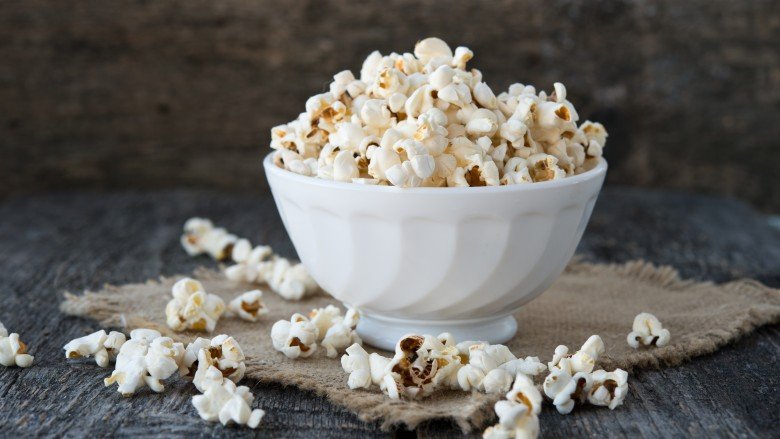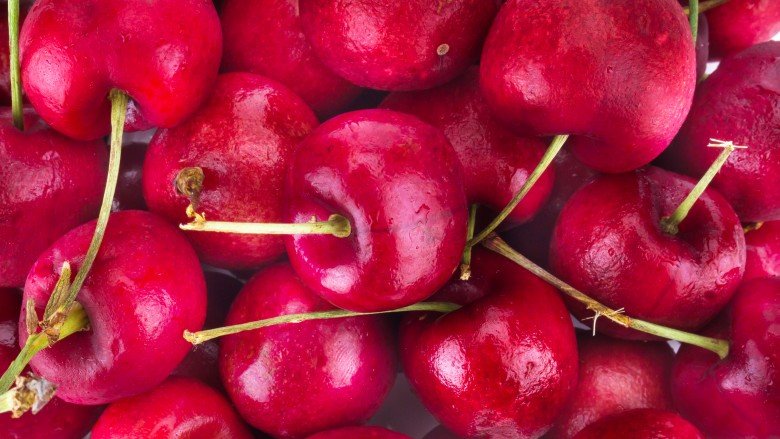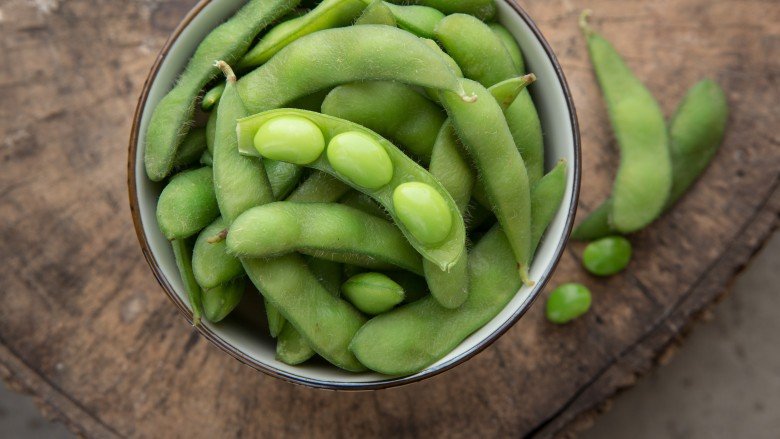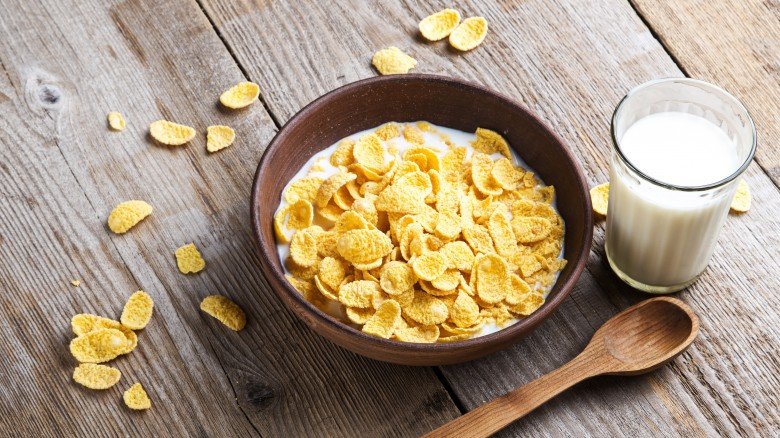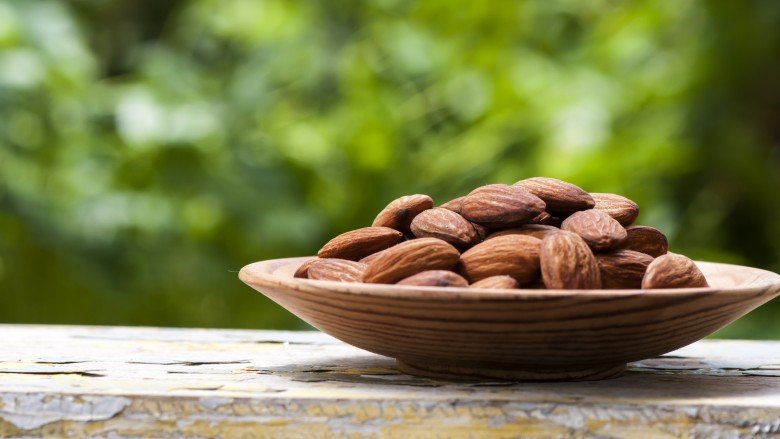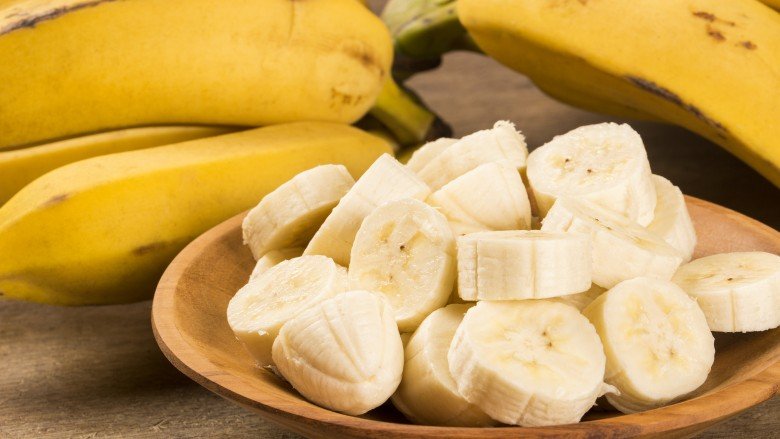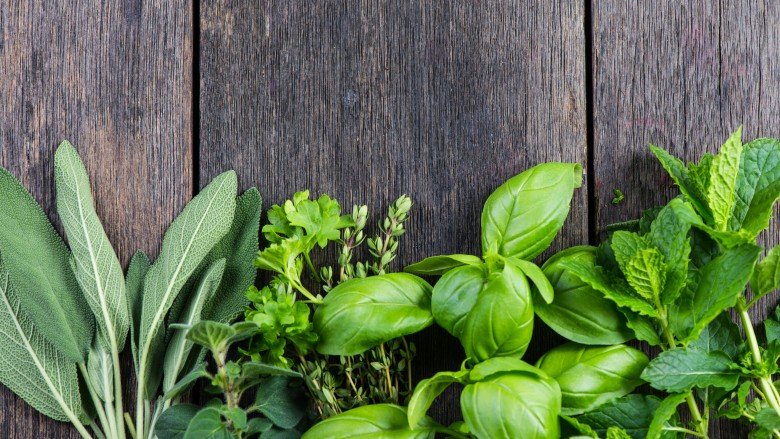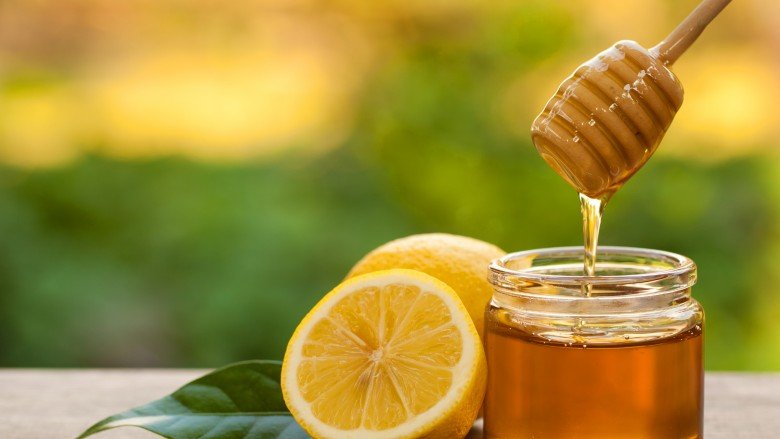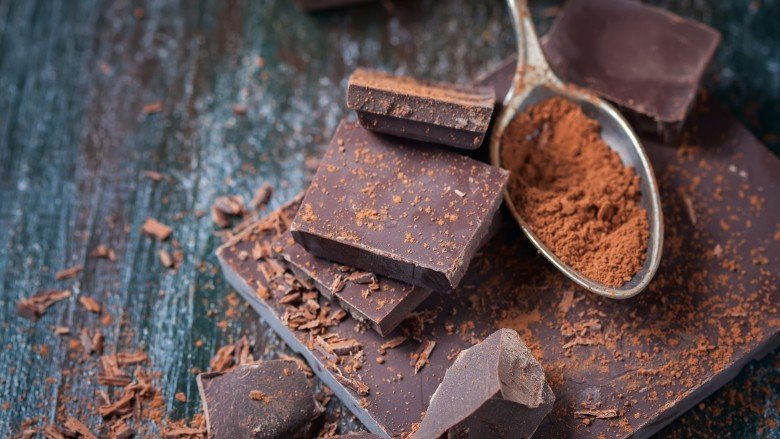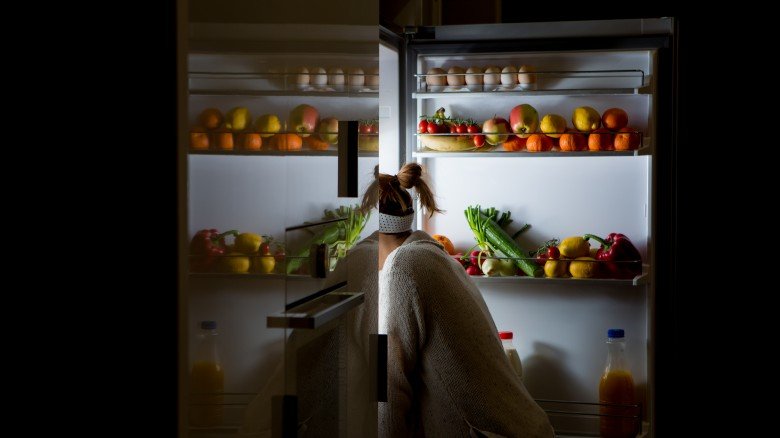Foods Guaranteed To Help You Sleep At Night
Some nights, sleep comes quickly and easily and before you even realize it, you're drifting off to dreamland. Other nights, well, sleep is far more elusive. Whether you're sweating the little details of an upcoming event, stressing over a big work project, worried about friends, family members, your pet, your kids, your partner, that weird sound the car started making the other day, or something else entirely, just about everyone experiences nights where they're tossing and turning until the wee hours of morning because their brain won't shut off for even a minute.
While it can be tempting to turn to medication, meditation, or just about anything someone suggests that will help you get a more restful night's sleep, the answer to a more peaceful and revitalizing slumber may actually be in what you choose to eat — either earlier in the day or even as a bedtime snack. Certain foods can help you sleep sounder, so says science.
Rather than simply willing your body and brain to just rest already (and torturing yourself just a little bit in the process), fix yourself a little pre-sleep snack, change up your usual breakfast routine, or use the opportunity to branch out and try some new-to-you foods that you either haven't eaten before or aren't normally found taking up space on your weekly grocery list. Better, more restful sleep, plus a tasty snack. Win-win.
Peanut butter
What is it that makes peanut butter a sleep-boosting food? Tryptophan, the very same amino acid that people claim causes them to feel a bit drowsy after an especially large Thanksgiving dinner (though that could just be the large amount of comfort food they just ingested).
Tryptophan is considered an essential amino acid, which means that your body doesn't make it naturally on its own. Rather, you have to eat tryptophan-containing foods in order to get the amino acid, according to the MedlinePlus Medical Encyclopedia.
Many foods contain the sleep-boosting amino acid, including peanut butter (and peanuts), as noted by MedlinePlus. Peanut butter is a good source of protein, which can help your tummy feel full enough to lull you to sleep, as well. According to a YouBeauty nutrition advisor, when paired with a complex carbohydrate, such as whole wheat crackers or a slice of whole wheat bread, this is a pretty stellar bedtime snack.
Hummus
Hummus is experiencing a bit of a boost in popularity as of late (well, really, it's been trendy for a while, hasn't it?) and as it turns out, eating some hummus with a bit of whole wheat pita could help you snooze a little better and wake up more rested.
The main ingredient in hummus — chickpeas — contains tryptophan, the amino acid you have to thank for making you sleepy. And the tahini that's also a main ingredient in hummus? It's made from sesame seeds, which are also a great source of tryptophan. Not only that, but it's a one-two punch because researchers note tryptophan turns into 5-HTP, which releases serotonin, the hormone that helps you relax.
The whole wheat pita? It's a good source of complex carbohydrates, which makes the snack a more well-rounded one.
Yogurt
Need a late-night snack to help fill your stomach and wind you down before crawling into bed? What about yogurt? According to the MedlinePlus Medical Encyclopedia, dairy products (including yogurt) contain tryptophan, which helps promote sleep, but also, as you likely know, are a good source of calcium.
"Calcium is effective in stress reduction and stabilization of nerve fibers, including those in the brain," Dr. Saundra Dalton-Smith, an internist and author of Set Free to Live Free: Breaking Through the 7 Lies Women Tell Themselves, told Woman's Day. That should help your brain slow down enough to let you sleep.
Peas
While definitely not the typical bedtime snack, peas are a great choice as a vegetable side dish that can help promote healthy and productive sleep. According to an article from SFGate, peas contain pantothenic acid, which helps your body produce acetylcholine for healthy brain activity during sleep, and helps your body produce melatonin, which regulates your sleep cycle.
Green peas are a summery treat, while split peas can be slowly coaxed into a velvety soup in the cooler months. Either can help boost your slumber later on that night.
Lentils
Lentils are related to peas (among other yummy and good for you foods), so it may not be super surprising that they can help you sleep better.
According to Cooking Light, lentils are yet another good source of tryptophan — the amino acid that helps promote slumber — which is why you'll doze off a little easier and sleep a little sounder after polishing off a bowl of soup or salad studded with ultra-healthy lentils.
Popcorn
One of my favorite-ever late night snacks is a bowl of quick, low-fat (or fat-free) popcorn. Crunchy and salty, but still pretty healthy, popcorn isn't too bad of an after dinner choice — and it goes great with a few episodes of your favorite TV show or a good movie marathon.
Better yet, popcorn can help you sleep. While the nutrients intrinsic in popcorn don't directly contribute to your improved night's sleep, the carbohydrates (popcorn's chock full of them) in this salty snack can, according to Matthew Kadey, a registered dietitian who wrote an article in Shape, assist in bringing the tryptophan you've ingested over the course of the day into your brain so that it, in turn, can help make you drowsy.
Cherries
Cherries — but not the sickly-sweet candied variety that you remember eating far too many of on ice cream sundaes in childhood — have tons of health benefits.
Cherry juice (or a bowl of cherries themselves) is nearly the simplest of snacks and works for any time of the day. You may want to consider it for your after dinner snack, however, because cherries, specifically of the tart (not sweet) variety, can help you sleep more soundly at night.
According to research published in the European Journal of Nutrition, consuming tart Montmorency cherry juice can increase the amount of time you spend in bed, as well as how long and how well you'll sleep. Additionally, a study published in the Journal of Nutrition, Health, & Aging, found that eating or drinking a cherry-based product from Jerte Valley, an agricultural region in Spain known for cherries (among other things), can help you sleep sounder and longer, allowing you to wake up more rested. What's not to like about that?
Edamame
Edamame is a staple at Japanese restaurants. It's healthy and delicious, especially when lightly salted. Dr. Dalton-Smith told Woman's Day that soy products, of which edamame is one, can help alleviate menopausal hot flashes, which can disrupt nighttime sleep. How? They contain natural compounds that are similar to estrogen, which helps your body maintain hormonal balance.
Edamame can be eaten steamed, blanched, stir-fried, or whipped into a spread similar to hummus or white bean dip.
Cereal
A bowl of cereal and milk was my go-to childhood bedtime snack (and, occasionally, dinner if I didn't like what I was supposed to be eating). As it turns out, that particular snack really was helping me sleep better at night.
According to the National Sleep Foundation, the best choice for an after-dinner snack is one that's made up of both carbohydrates (complex are best) as well as protein. In the case of cereal and milk, cereal is the carb part of the equation, while the milk brings the protein. Not into dairy? According to Healthline, soy milk contains nearly as much protein as cow's milk.
Almonds
A handful of almonds (or other nuts like walnuts, cashews, or pistachios) could help you drift off to sleep faster and sleep sounder if you eat them before you go to bed.
According to the Cleveland Clinic, almonds, which are a good source of unsaturated fat, can increase the levels of serotonin in your body, helping you to relax and lull yourself to sleep. Be more careful to avoid saturated and trans fats if you're concerned about your quality of sleep, as these types of fats can actually lower your serotonin levels — just the opposite of what you're looking for.
Healthy food bonus: almonds are also good for your heart.
Bananas
If you're anything like me, bananas are more of a breakfast or mid-morning snack than bedtime snack, but you and I might both need to rethink that. As Dr. Dalton-Smith told Woman's Day, bananas are a good pre-sleep snack because they're good sources of both potassium and magnesium, which help foster sleep by helping relax your muscles.
Additionally, Dalton-Smith asserted to Woman's Day, bananas also contain tryptophan, which once converted to serotonin and melatonin, help calm you down and prepare you for slumber. Slather some peanut butter on banana slices for extra sleep-boosting perks.
Herbs
Valerian, chamomile, and lavender (among others) are all popular herbs that are recommended to assist with sleep promotion. There is, however, some question about the amount of solid evidence that valerian or chamomile actually work.
While scientists suggest more research is needed, anecdotally (I drink lavender, chamomile, and valerian-based teas before bed quite often, to wind myself down and get myself ready for bed) these are tried and true remedies. Lavender essential oil can also help you reach a particularly lovely state of calm that lets you gently drift off to sleep — there's no forcing it.
Honey
If you're going to try a little herbal tea or peanut butter spread on toast to help you fall asleep faster, add a little bit of honey for added sleep-boosting properties.
According to the American Sleep Association, honey is good for sleep because the natural sugars (glucose) help reduce the amount of orexin produced. Orexin, a neurotransmitter, makes you more alert. Tamping that down is vital for good, healthy sleep.
Bananas and peanut butter on whole grain toast with a drizzle of honey? Why not, go ahead and cover all of your bases.
Dark chocolate
Chocolate is by far my favorite bedtime snack, so the news that munching on some dark chocolate can actually help improve my sleep is pretty much music to my ears.
According to a 2016 study from researchers at the University of Edinburgh, magnesium is critical when it comes to regulating sleep-wake cycles, which is necessary for successful sleep.
Many foods contain this essential nutrient, however, as Boston's CBS affiliate noted, dark chocolate is a good source of it, so why even consider any other food? Chocolate makes everything, including sleep, a little bit sweeter.
You might be able to eat your way to better sleep
The foods you eat both throughout the day as well as right before bed can help improve your quality of sleep at night and help you fall asleep more quickly. Ingredients containing tryptophan, magnesium, unsaturated fats, and the like are good choices when it comes to working on bettering your sleep.
Combine several of these foods (like the aforementioned sliced bananas, peanut butter, and honey on whole grain toast) for just about the best non-medicinal, pre-sleep insurance you can get.

